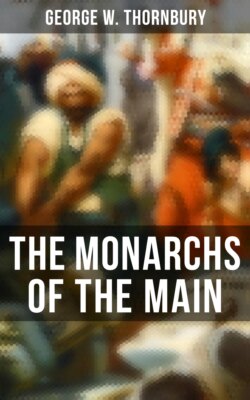Читать книгу The Monarchs of the Main - George W. Thornbury - Страница 7
На сайте Литреса книга снята с продажи.
CHAPTER II.
MANNERS OF THE HUNTERS.
ОглавлениеTable of Contents
Derivation of the words Buccaneer and Flibustier—The three classes—Dress of the hunters—West Indian scenery—Method of hunting—Wild dogs—Anecdotes—Wild oxen, wild boars, and wild horses—Buccaneer food—Cow killing—Spanish method—Amusements—Duels—Adventures with the Spanish militia—The hunters driven to sea—The engagés, or apprentices—Hide curing—Hardships of the bush life—The planter's engagés—Cruelties of planters—The matelotage—Huts—Food.
The hunters of the wild cattle in the savannahs of Hispaniola were known under the designation of Buccaneers as early as the year 1630.
They derived this name from boucan,[1] an old Indian word which their luckless predecessors, the Caribs, gave to the hut in which they smoked the flesh of the oxen killed in hunting, or not unfrequently the limbs of their persecutors the Spaniards. They applied the same term, from the poverty of an undeveloped language, to the barbecue, or square wooden frame upon which the meat was dried. In course of time this hunters' food became known as viande boucanée, and the hunters themselves gradually assumed the name of Buccaneers.
